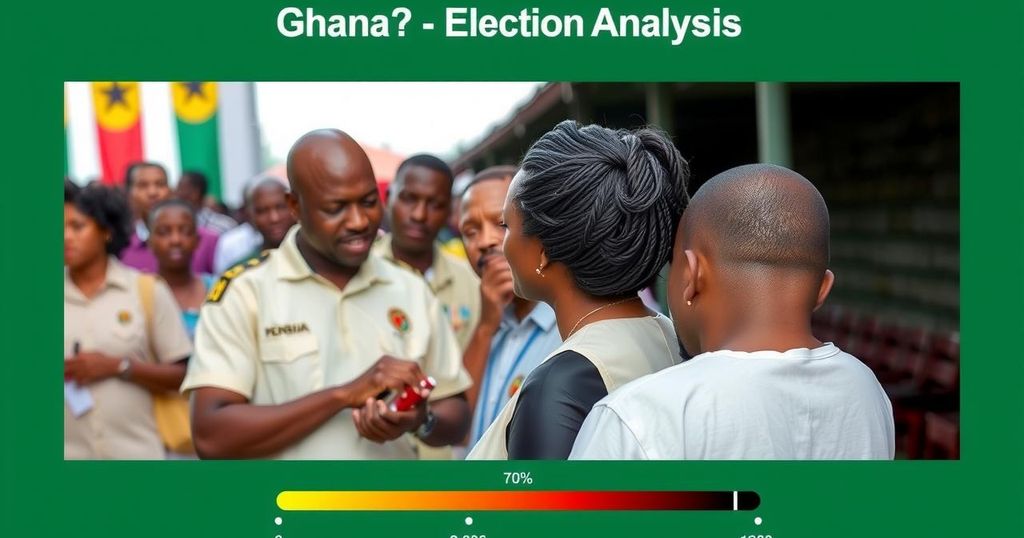In the 2024 elections, Ghana’s ruling NPP, led by Nana Akufo-Addo, lost power to the opposition NDC and John Mahama due to widespread dissatisfaction with economic conditions, high inflation, and rising unemployment. The election results reflect a broader African trend of opposition victories, driven by mounting public demand for accountability and effective governance.
Ghanaians have demonstrated their electoral power by voting out the ruling New Patriotic Party (NPP) led by President Nana Akufo-Addo in the 2024 elections, which was marked by significant public discontent over economic challenges. This election loss signifies a broader trend, as no ruling party has maintained power beyond eight years since the democratic transitions began in 1992. Both the recent economic hardships, marked by soaring inflation and rising unemployment, and public perception of government corruption played critical roles in swaying voters toward the opposition National Democratic Congress (NDC) led by former President John Mahama.
The economic crisis in Ghana has been described as one of the worst in the country’s history, with inflation reaching a staggering 54% in 2023, significantly affecting the cost of living. Many citizens expressed frustration over their inability to afford basic necessities. Political analysts, including Mussa Dankwah, posited that economic conditions heavily influenced the election results, with widespread dissatisfaction leading voters to favor change. Despite government efforts promoting achievements like the Free Senior High School program, and a campaign slogan championing “breaking the eight,” the NPP failed to convince a majority of voters amidst ongoing economic distress.
The NPP’s campaign strategy, heavily reliant on achievements in education and digitalization, was overshadowed by pressing issues such as rampant unemployment and severe tax burdens, including a controversial e-levy. Many young voters, a significant demographic, highlighted job availability as a critical issue, reflecting their discontent with the current administration’s handling of the economy.
In this election, the NDC not only reclaimed the presidency but also significantly expanded their representation in Parliament, even winning regions previously dominated by the NPP. This electoral shift reflects a growing trend across Africa, where ruling parties are increasingly being replaced, often amidst economic crises and allegations of corruption. The results from Ghana mirror this dynamic, highlighting the electorate’s demand for accountability and effective governance in their leadership.
The context of the 2024 elections in Ghana is rooted in the country’s political history, where ruling parties have historically struggled to maintain power beyond a single two-term cycle, typically limited to eight years. The elections were conducted against a backdrop of escalating economic challenges, including high inflation, unemployment, and a debt crisis, which eroded public support for the NPP. Ghana’s economic situation was severely impacted by global events such as the COVID-19 pandemic and the ongoing Russia-Ukraine war, culminating in widespread dissatisfaction with the government’s ability to address pressing societal issues. The NDC capitalized on these concerns, presenting themselves as a viable alternative after former President Mahama’s electoral defeat eight years prior.
In conclusion, the 2024 elections in Ghana mark a significant political shift as the NPP, under President Nana Akufo-Addo, has been ousted from power amid widespread public dissatisfaction stemming from economic hardships and perceptions of corruption. The NDC’s victory reflects the electorate’s desire for accountability and effective governance, further illustrating a trend observed across several African nations where ruling parties have faced increasing challenges at the polls. This outcome underscores the importance of addressing economic constraints and fostering transparency to restore public trust in government.
Original Source: www.bbc.com






